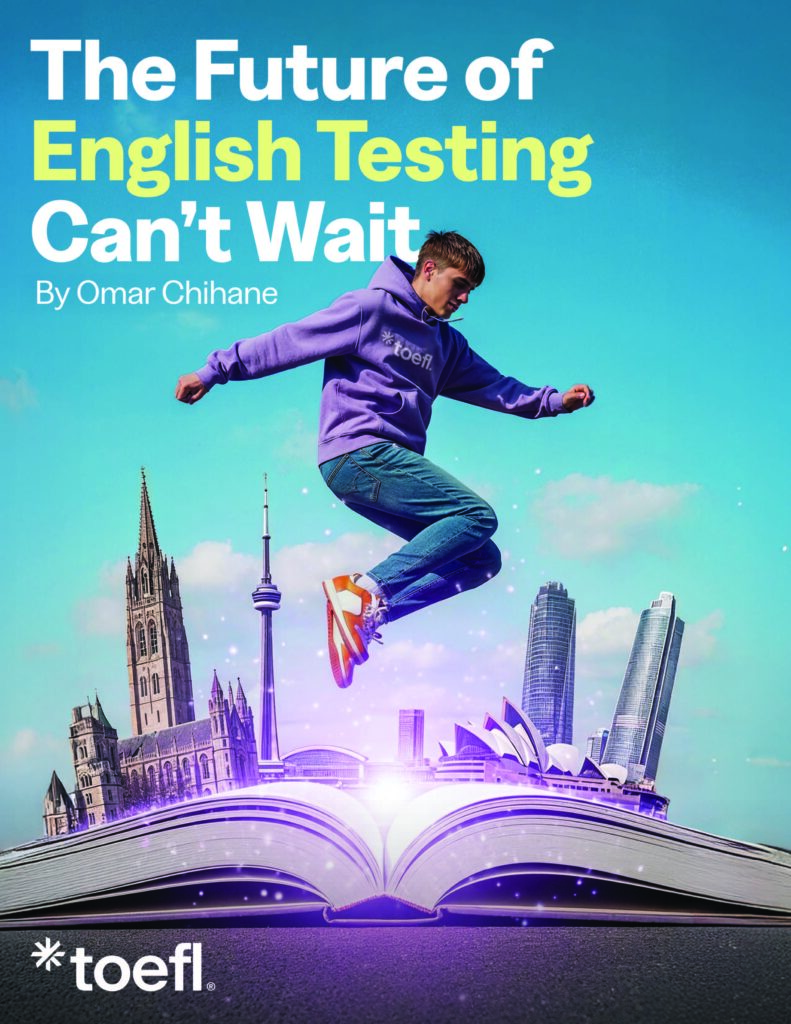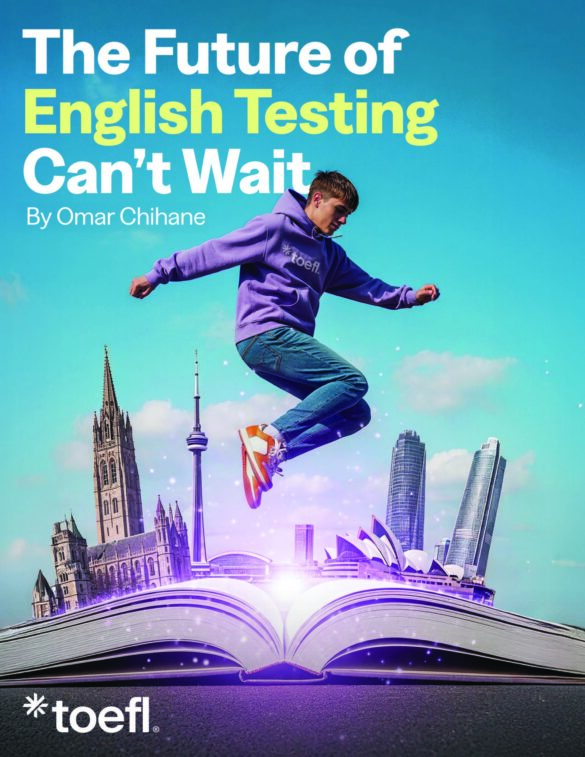

English testing is at a crossroads. Every year, millions of international students bet their futures on English proficiency tests. These assessments determine who gains entry to the world’s top universities and, in many cases, who gets a shot at the careers that will shape tomorrow’s economy. That is an extraordinary responsibility. The truth is that we cannot afford to deliver yesterday’s testing experience to tomorrow’s learners.
The Pace of Change
Artificial intelligence is reshaping industries. Universities are racing to globalize. Students, true digital natives, consume information through short-form video, complete course-work online, and expect immediate feed-back. They will not settle for tests designed for a predigital era. If language assessment is to remain relevant, trusted, and empowering, it must evolve boldly, not cautiously.
The New Reality for Learners
Students today are not only crossing borders for education. They are entering environments where agility, resilience, and communication are as essential as academic preparation. They need assessments that measure readiness for that world—not just whether they can recall vocabulary or parse a reading passage, but whether they can collaborate, persuade, and adapt in real time. Universities are competing harder than ever for international talent. Governments are adjusting visa and enrollment policies. Employers are seeking transferable skills in addition to technical knowledge. In this context, a language test is not simply a gateway; it is part of a student’s passport to the future.
A Glimpse of Progress
Some progress is being made. The enhanced TOEFL iBT, for example, has been redesigned to simplify the test-taker experience and better reflect real-world communication. Faster score reporting, improved prep tools, and upgraded test-center technology are positive steps that speak to learners’ expectations in a digital-first world. But these improvements are not the endpoint. The bigger opportunity is to think beyond one exam or one score. Assessment should not be viewed as a single hurdle; it should be part of a continuous learning journey.


Beyond the Score
Imagine assessments that not only show where a student stands today but also point them toward growth tomorrow. Imagine tests that feel less like obstacles and more like tools for empowerment. For universities, the benefit is clear. Admissions offices are not simply looking for students who can get by in English. They want learners who will thrive, contribute, and graduate ready for a global workforce. Modernized tests, designed around authentic communication, provide a much stronger signal of that readiness.
Where Testing Must Go Next
Looking further ahead, the possibilities for language assessment are extraordinary. Scores could feed directly into personalized learning platforms, creating a seamless connection between assessment and instruction. Speaking and writing tasks could mirror genuine academic debates, workplace meetings, or cross-cultural collaboration. Automated scoring could provide immediacy while trained experts ensure fairness, reliability, and equity. Secure, flexible testing options could make access universal, ensuring no student is denied opportunity because of geography, politics, or circumstance. These are not far-off dreams. The technology exists today. The challenge is whether we as educators, institutions, and providers can embrace it quickly enough to meet the needs of learners who will not wait.
Universities as Partners in Change
Universities and educators play a vital role in driving this change. By supporting forward-looking assessments, they send a message to students: we value your future as much as your admission form. Choosing assessments that are rigorous, research-backed, and modernized shows commitment to both tradition and innovation. In a global competition for talent, that signal matters.
Bold Steps, Not Small Tweaks
The modernization of English testing is not about convenience; it is about reimagining what it means to demonstrate readiness in a way that respects students’ time, reflects their realities, and supports their futures. If we are serious about empowering the next generation of global learners, we must be bold. Language testing must become faster, smarter, more flexible, and more meaningful. At ETS, we are proud to contribute to that transformation, not by discarding what has made English assessment globally trusted but by reinventing it for a new era. For educators, institutions, and students alike, the message is clear: the future of English testing is not just coming, it is here, and it must be built with them and for them. This is both a challenge and an invitation. Teachers, researchers, and education leaders have essential voices in shaping the next chapter of language testing, making sure it reflects the skills that truly matter and serves the students whose futures depend on it to progress.
Omar Chihane is global general manager, TOEFL, at Educational Testing Service (ETS).


